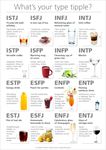Communication
How personality type affects team performance and job satisfaction
Global Marketing, The Myers-Briggs Company
New research sends clear message to team leaders
Why self-awareness is not enough
Kevin Wood, The Myers-Briggs Company
Business psychology experts on leadership and people development in organizations
People have forgotten how to work with each other
Kevin Wood, The Myers-Briggs Company
Our consultants share the workplace trends and topics they’re hearing about
Enhancing communication in teams
Melissa Summer, The Myers-Briggs Company
In this post we explore practical strategies for improving team communication and recommend tips to improve how team members interact on the job.
Working Across Cultures
Melissa Summer, The Myers-Briggs Company
What are the biggest challenges people face working across cultures? Listen to this episode of The Myers-Briggs Company Podcast with Frank Garten, cross-cultural expert and global leadership trainer to learn how to mitigate cultural challenges and improve communication.
Overcoming team communication challenges
Melissa Summer, The Myers-Briggs Company
In this post, based on an interview with Myers-Briggs Professional Services Principal Consultant and Depth Psychologist Dr. Marta Koonz, we discuss communication in teams, the psychological needs of teams, and their impact on collaboration.
In-person development and the importance of human synchronization
Melissa Summer, The Myers-Briggs Company
What is human synchronization and why is it important for learning and development trainers, consultants and coaches to consider?
MBTI personality type and relationships
Melissa Summer, The Myers-Briggs Company
How can MBTI personality type help strengthen relationships? Do people with the same type get along better? Listen to this episode of The Myers-Briggs Company Podcast to find out!
Does the MBTI assessment work across cultures?
Melissa Summer, The Myers-Briggs Company
The world has been flattened by technology and working across county and cultural borders is now the norm. But can you use the Myers-Briggs Type Indicator assessment across borders? Here’s what you should know.
Use conflict as a health check for your team
Kevin Wood, The Myers-Briggs Company
Is lack of conflict a sign of dysfunction? And what do people feel about conflict today?
How to build a more effective hybrid workplace
Global Marketing, The Myers-Briggs Company
Paying closer attention to employee needs is the way to make remote, in-office, and hybrid teams function better
What are the new sources of conflict at work?
Kevin Wood, The Myers-Briggs Company
Learn the types and causes of conflict to be better prepared in how you manage conflict
Conflict at work: what are your options?
Melissa Summer, The Myers-Briggs Company
If conflict management is something you dread, here’s how to start turning it around
Conflict Management
Melissa Summer, The Myers-Briggs Company
How can conflict management save organizations money?
Psychology of Change
Melissa Summer, The Myers-Briggs Company
What is change management and why does it matter for organizations?
Introducing The Myers-Briggs Company Podcast
Melissa Summer, The Myers-Briggs Company
The Myers-Briggs Company is launching a new podcast about psychology, personality, work life, and how to get the best from life.
Were you asked if you wanted to go back to the office?
Kevin Wood, The Myers-Briggs Company
If not, you might be part of a hybrid strategy that’s about to fail.
Social contracts, returning to the office and retaining your people in the new hybrid workplace
Melissa Summer, The Myers-Briggs Company
As employees return to the office, they’re expecting more flexibility in their social contracts with employers. How can HR help?
Using interpersonal needs to make the hybrid model work for teams
Melissa Summer, The Myers-Briggs Company
Is it possible to get the best of both worlds with hybrid work?
The Platinum Rule for business
Rachel Cubas-Wilkinson, Senior Consultant, The Myers-Briggs Company
How observing the Platinum Rule builds stronger workplace relationships
Trust and remote working
Helen Rayner, Thought Leadership Lead Consultant, The Myers-Briggs Company
What can you do to help maintain positive relationships remotely?
People need people!
Nikhita Blackburn, Thought Leadership Lead Consultant, The Myers-Briggs Company
Tips for working from home
The Psychology of Change
Melissa Summer, Content Marketing and PR Manager at The Myers-Briggs Company
There’s an important part of business growth that’s often overlooked – change.
Work digital, play digital

MBTI Talk
How social media and gamification can help employees grow
The changing world of work

MBTI Talk
PeopleFWD 2018 promises insights and practical solutions
Together, not together

John Hackston, Head of Thought Leadership, OPP
Want to stop people speaking to each other? Put them in an open-plan office
Leadership strengths through the lens of Type

Aidan Millar - Human Development Consultant for Psychometrics Canada
Research Study exploring leadership strengths through the lens of Type
Top content summary from 2016

John Hackston, Head of Thought Leadership, OPP
Did you miss some of the most popular content from last year?
Using MBTI Type to get to grips with email – quickly

John Hackston, Head of Research at OPP
Research based tips for more effective email communication between different MBTI personality Types.
MBTI, communication and the Brexit phoney war
John Hackston, Head of Research at OPP
Using the MBTI framework to form effective communications during these strange, unknown and stressful times.
Using Type to 'get' email

John Hackston, Head of Research at OPP
How do different MBTI Types use and feel about email? We explore some recent research to see what we can learn
Breaking the ice

Penny Moyle, CEO OPP
Looking for an easy to implement icebreaker? Bingo!
How to influence with impact

Penny Moyle, CEO OPP
Damian Killen reveals the role MBTI Type has on successful influencing
Decoding communication issues between MBTI Types

Betsy Kendall, COO and Head of Professional Services, OPP
Inside-Outside Typies - a new way to explore Type dynamics by combining Typies and Core Characters
The MBTI instrument - my most valid tool
Hile Rutledge, President OKA
One of America’s most respected trainers in the MBTI framework shares his thoughts
Introducing the Core Characters of Type
Betsy Kendall, COO and Head of Professional Services, OPP
How can we make it easier to talk about the real power of MBTI: Type dynamics?
Understanding the science of conflict

Betsy Kendall, COO and Head of Professional Services, OPP
Betsy Kendall explores the different conflict styles and how they can be used most effectively.
Persuasion people and personality
John Hackston Head of R&D at OPP
The power of persuasion in the context of MBTI Types - how do they differ?
Five most common ways to alienate your staff

John Hackston - Head of R&D at OPP
The employment market seems to be improving, which is good news for jobseekers but not necessarily for employers; having more jobs available means that there are more opportunities for workers to leave. All the more important, then, that managers don’t give their people that extra incentive to start looking elsewhere. Here are five of the most common ways in which managers can (and unfortunately do) alienate their staff.
Watch out: overconfident opinion leaders about!

John Hackston - Head of R&D at OPP
Few people would argue against the concept of thought leadership. Not listening to the views of leaders in our field, or ignoring ideas for better ways of doing things, is hardly a recipe for success. However, individual opinion leaders don’t always get it right, and the catch is that those who sound most confident in their pronouncements aren’t necessarily the most accurate.
Push me, pull me - the persuasive power of the MBTI process

Penny Moyle - CEO at OPP and Lorraine Mills - Head of Consultancy at OPP
Whether or not you are a sales professional, and even if you don’t see selling as part of your job, there are times when everyone needs to influence or persuade. OPP recently worked with a regional sales team in a financial services organisation to help them become more successful. The same techniques we applied there can easily be adapted to create more persuasive communication for anyone – not just sales people.
Top five blog articles of 2014

OPP Ltd
Visits to our Personality Matters Blog were at an all-time high in 2014, and we covered a wide range of topics in our weekly posts. Over the last 12 months we've talked about the best MBTI-based books and the various resources available for L&D teams. We’ve promoted Movember, and we’ve chipped in to the Paul Flowers furore. We've continued to thrive as thought leaders in a diverse range of workplace psychology issues, from recruitment and assessment centres to polarity management. But what are the top five posts that readers have returned to again and again?
Ten top tips for staff retention

Julia Nickless - Key Account Manager at OPP
Staff retention is a major issue for many organisations. Some environments are feeling the effects more than others - call centres, for example, are practically haemorrhaging employees. Consequently, HR professionals need to find more effective ways to retain talent. Our blog post offers ten top tips for engaging with staff and keeping them on board.
Ten more books about MBTI and type that you can't afford to be without!

sitecore\OPP Ltd
In the second of our blog posts looking at 20 invaluable books about MBTI® and type, we review another ten titles that have impressed MBTI practitioners or been a key support in their work with the MBTI assessment. As with the first batch, the books featured here are listed in no particular order, and comments are from individual reviewers who responded to our request for reviews on the Linked In group OPP Qualified Professionals.
Receiving feedback well... a question of give and take

Claire Bremner, Senior Consultant at OPP
I'm reading a book at the moment – Thanks for the feedback: the science and art of receiving feedback well by Douglas Stone and Sheila Heen (Harvard Law School). I bought it on the strength of an article in the Saturday Guardian by Oliver Burkeman, which included a comment that really made me chuckle: “Tell me what I did well, tell me what I should do differently and don't confuse the two. If I wanted a sandwich, I'd go to the office canteen.” If only receiving feedback was as straightforward as eating a sandwich!
Celebrate with 25 free resources for practitioners

TeriSmith
Few things in life are free – but OPP has some really cool free resources to support you in your work! To help celebrate our 25 years in the business, we’ve taken a trawl through the various goodies available for zero outlay on our website. They range from white papers and feedback materials to fun quick guides and infographics – many of which can also be found on our practitioner downloads page.
Why every coach needs the MBTI
TeriSmith
MBTI® type is a crucial tool in the coach’s repertoire. Most misunderstandings and barriers to success tend to be caused by communication breakdowns and differences among people, so learning about our own personality type and that of our peers is vital in any context. But this is doubly so in coaching!
Email - a short cut to winding up your colleagues?

TeriSmith
Email communication is notoriously prone to misunderstanding. Deceptively informal, it lacks the richness of face-to-face communication. I’ve just experienced this myself (again): I sent what I thought was a clear and straightforward email, which was perceived by the recipient as pointed and critical. It has taken several voice-to-voice conversations to clarify and mend fences. I don’t know about you, but I need all the help I can get to avoid my emails causing conflict and confusion.
Hitting the nail on the head

TeriSmith
One of the differences we often talk about between Thinking types and Feeling types is their approach to a 'problem'. Usually Thinking types want to fix or solve the problem, and Feeling types prefer first that someone just listen and offer empathy. They are both showing how they 'care', but do so in very different ways.
'Typing' your emails: communicating better with the MBTI tool

TeriSmith
You go to a meeting, grab a bite to eat, or even run to the restroom, and yet it never sleeps: your email inbox. So you sit down with your computer or Blackberry and start hammering out replies rapid-fire. However, those emails can often be misinterpreted by the recipient, leading to confusion and miscommunication between colleagues. Could some of the confusion and miscommunication relate to psychological type? Could it be that the sender of the email has different type preferences than the reader? This would explain why miscommunication occurs so frequently through email.
Avoiding the ‘so what?’ factor with MBTI development
TeriSmith
When I speak to people who have ‘done the MBTI’, all too often all they can recall from their experience is their four-letter MBTI type (sometimes even that is a stretch!). The initial impact has been lost, and the ongoing learning that should have opened up after cracking their four-letter code has eluded them.
Nurturing influencing skills using the MBTI framework
TeriSmith
Finance departments in large organisations are often regarded with a degree of suspicion. They demand numbers and figures from everyone, and say “No” to requests for more resources. Like many finance functions, the one at the large international food manufacturer we were working with had mixed relationships with the business, and matters had been complicated both by the history of the business and the new corporate agenda.
Type and culture: two pieces of the same puzzle
TeriSmith
Our guest blogger Joanne Weston, ICF Associate Certified Coach and MBTI® practitioner, shares some practical tips for using the MBTI tool cross-culturally.
A consultant's experience: bringing Sensing and iNtuition to life in a team
TeriSmith
I was recently asked to run a focused and pragmatic MBTI session with a team of nine sales managers in a very successful FMCG company. My brief: “They’ve been through MBTI before and they are bright go getters, so it needs to be impactful”. “No pressure there, then!” I thought.
Infographic: MBTI and social media usage

TeriSmith
Does your use of Facebook, Twitter, LinkedIn and other social media reflect your MBTI type? Who is most likely to use Facebook in their personal time vs their work time? And how does this compare to the most common type associated with LinkedIn users? This new infographic gives you all the answers!
Looking for love this Valentine’s? What if your date is just not your type?!
The Myers-Briggs Company
What can the MBTI tool tell us about dating?
Is power sharing the key to engagement?
TeriSmith
Shared business ownership can have many benefits in the workplace.
News travels fast - social media and employer brand
TeriSmith
The surge in social media usage in recent years presents new problems for employers about employees' conduct on such sites.
Ensuring people 'hear' what you are really saying
TeriSmith
How many of us have really fully considered how our natural ways of interacting with others may impact the messages we convey?
Stressed-out Britain
TeriSmith
As stress is becoming an increasingly prominent issue in the lives of so many, we're turning to solitary pursuits for relaxation.
Categories
- B Corp
- Care
- Careers
- Coaching
- Communication
- Conflict management
- CPI260
- Current affairs
- Decision making
- Emotional intelligence
- FIRO
- Infographics
- Leadership
- Leadership development
- Managing change
- Managing stress
- MBTI
- OnBoarding
- Personal development
- Podcasts
- Recruitment
- Social media
- Sport
- Strong
- Team development
- TKI
- Top tips
- Training